Region 1
- Events
- Region 1
IEEE-USA Livestream Webinar: 2024 Economy & Job Hunt
Virtual: https://events.vtools.ieee.org/m/409085Embarking on a job hunt for executive or professional roles in 2024? Delve into the secrets of a successful job hunt and unlock the key trends shaping this year's employment scene. Elizabeth will unravel the mysteries surrounding the economic forecast, unveiling whether it's the perfect time to embark on a new career chapter or conduct a stealthy job search. Discover the cutting-edge resume strategies and gain an insider's perspective on what hiring managers are truly seeking in the talent they bring aboard. Don't miss out on this exclusive session where the future of your career awaits! Speaker(s): Elizabeth Lions Agenda: IEEE-USA's free webinars/events are designed to help you find your next job, maintain your career, negotiate an appropriate salary, understand ethical considerations in the workplace and learn about other career-building strategies and public policy developments that affect your profession. For information regarding upcoming webinars or to visit our vast webinar archive, please visit: (https://ieeeusa.org/careers/webinars/) (https://newsletter.smartbrief.com/rest/sign-up/2479DAB0-4089-43E7-925D-86AE0C1E6244?campaign=e0d52cef) Virtual: https://events.vtools.ieee.org/m/409085
IEEE AES Inter-Section Chapter Collaboration
Virtual: https://events.vtools.ieee.org/m/425905Plan, implement and measure NJ Coast AES Inter-Section Activities Agenda: Past Calls - Overall Number of completed Talks - Number of Attendees per Talk Future Calls - Any Issues? - Any Assistance Needed? Student Competition - Any Training Required? Any Other Business? Virtual: https://events.vtools.ieee.org/m/425905
Webinar: Neuromorphic Computing for Future AI Systems
Virtual: https://events.vtools.ieee.org/m/426383Neuromorphic Computing for Future AI Systems Cory Merkel, Ph.D. Director, Brain Lab Assistant Professor, Department of Computer Engineering, RIT Abstract: Artificial intelligence (AI) has become the linchpin in a growing number of products, services, and research programs which are aimed at automating and enhancing the human decision-making process. There is no doubt that AI will play a central role in the future of healthcare, transportation, manufacturing, and defense, among others. However, the rapidly growing size, weight, and power (SWaP) cost of AI algorithms limits their deployment on devices with practical computing and energy constraints (satellites, wearables, wireless sensors). In this talk, I will discuss our lab’s efforts to bridge this gap by closely emulating the structure and function of biological brains, with the ultimate goal of enabling AI in the most SWaP-constrained environments. This research takes a holistic approach, examining the entire AI stack, from devices and circuits to algorithms and applications. At the lowest level, I will present our research on memristor-based circuits for implementing weighted communication pathways in artificial neural networks (ANNs) and spiking neural networks (SNNs). Memristors reduce the power and latency associated with running ANNs/SNNs on traditional computer architectures by directly emulating both the memory and computation of biological synapses. In addition, memristor plasticity enables on-chip learning and allows ANNs/SNNs to function in the presence of hardware defects and process variations. Moving up the design hierarchy, the talk will highlight ideas for biologically-inspired energy management in neuromorphic systems and efficient ANN/SNN topologies. Finally, the talk will provide an overview of our research related to the trustworthiness and potential security vulnerabilities of AI hardware with ties to human perception and psychology. Bio: Cory Merkel is an assistant professor with the Department of Computer Engineering, Rochester Institute of Technology. He earned his BS and MS degrees in computer engineering (2011) and a Ph.D. in microsystems engineering (2015) from RIT. From 2016 to 2018, Dr. Merkel was a research electronics engineer with the Information Directorate, Air Force Research Lab. He is currently the director of the Brain Lab, a multidisciplinary research lab aimed at fundamental research to enable the next generation of ultra-efficient and trustworthy AI systems. His current research focuses on mapping of AI algorithms, primarily artificial and spiking neural networks, to mixed-signal hardware, design of brain-inspired computing systems using emerging technologies, and trustworthy AI hardware. Dr. Merkel’s research has been published in a number of peer-reviewed conferences, journals, and books. Co-sponsored by: IEEE, Rochester Section, Region 1 Speaker(s): , , Agenda: Wednesday, July 31st, 7:30 PM: Introduction of Dr. Cory Merkel, tonight's speaker. 7:35 PM: Presentation: Neuromorphic Computing for AI Systems 8:20 PM: Questions and Answers 8:30 PM: Webinar end Virtual: https://events.vtools.ieee.org/m/426383
MOVE Virtual Operations Class – Part 2 of 3
Virtual: https://events.vtools.ieee.org/m/423833Upcoming 2024 MOVE Operations Training Opportunities MOVE Operations Class – 3-part Virtual Series IEEE USA MOVE is offering a dynamic 3-part Virtual Operations Class essential for anyone gearing up for MOVE truck deployment, or with a keen interest in the program. New MOVE members must attend, and it's highly recommended for those who want to refresh their knowledge. We cover everything from deployment expectations to truck equipment and essential safety procedures. This virtual course spans three sessions, each lasting two hours. With the introduction of a third truck, we'll delve into the distinctions between the three. The Day 1 session will provide an overview of the MOVE truck operation for MOVE-1, MOVE-2 and MOVE-3 with a high-level understanding of truck operations, power systems, network systems and communications/radio systems. The differences between the three trucks will be discussed. The Day 2 session will provide a detailed orientation and discussion on truck operations, maintenance and power generations systems. The differences between the three trucks will be discussed. The Day 3 session will provide a detailed orientation and discussion on the networking and communications systems. An overview of the Cisco Meraki and radio systems operations and functionality will be provided. The differences between the three trucks will be discussed. Please use the following links to register for all three training sessions. This is a 3-part virtual class. Register to attend >> - Part 1: Tuesday, 30 Jul 2024 from 8:00 - 9:30 PM ET >> https://events.vtools.ieee.org/m/423831 - Part 2: Wednesday, 31 Jul 2024 from 8:00 - 9:30 PM ET >> https://events.vtools.ieee.org/m/423833 - Part 3: Thursday, 01 Aug 2024 from 8:00 - 9:30 PM ET >> https://events.vtools.ieee.org/m/423835 There will be a test after the third session - material will be provided for the test. Co-sponsored by: IEEE-USA MOVE Program Virtual: https://events.vtools.ieee.org/m/423833


